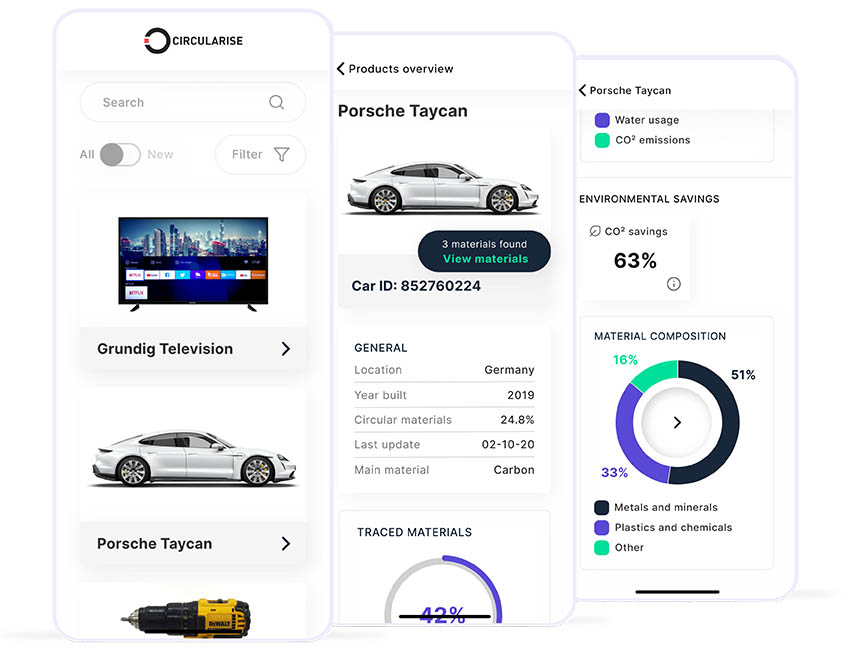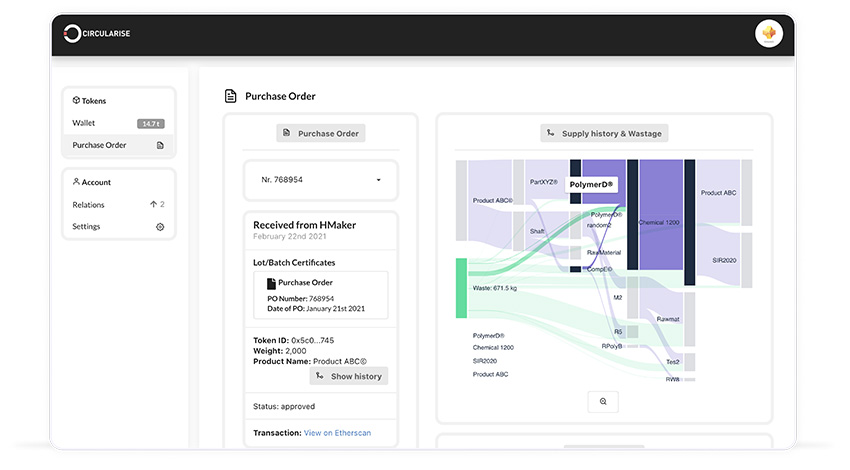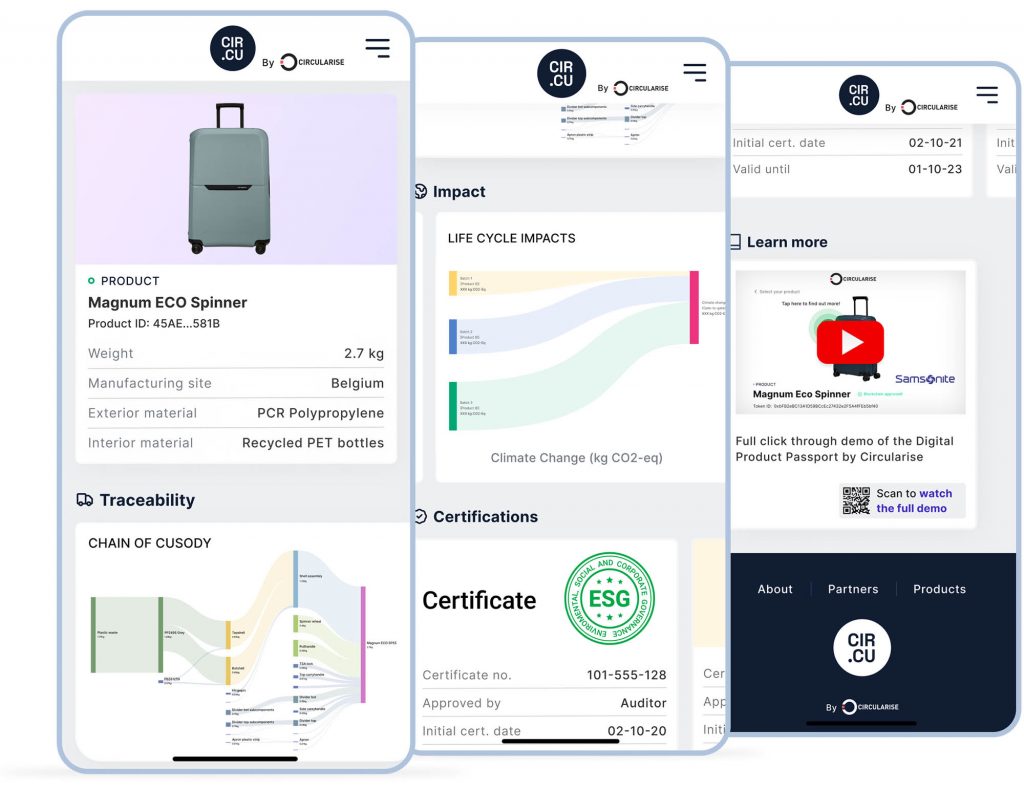Circularise is the leading software platform that provides end-to-end traceability for complex industrial supply chains. The company offers two traceability solutions: MassBalancer and Digital Product Passports.
Interview with Mesbah Sabur, Founder of Circularise.
Easy Engineering: What are the main areas of activity of the company?
Mesbah Sabur: Circularise uses the power of digitization to provide relevant and trustworthy data. The Digital Product Passports software helps companies to verify the origins, certificates, CO2 footprint, and other product data to improve the ESG performance. In the meanwhile, MassBalancer reduces the complexity of bookkeeping required for sustainability certifications in the chemicals sector. Ultimately, Circularise drives collaboration between entities towards more responsible means of production and consumption, enabling circular economy at scale.
E.E: What’s the news about new products?
M.S: Circularise launched a new product called MassBalancer on October 19th 2022, after a test with 10 parties. It is the pioneering software tool designed to reduce the complexity of bookkeeping required for the mass balance chain of custody model in the chemicals sector. Bookkeeping is needed to maintain certifications, such as ISCC Plus, which allocate sustainability claims to products based on the amount of sustainable feedstock used.

E.E: What are the ranges of products?
M.S: Circularise offers two cutting-edge supply chain solutions: MassBalancer and Digital Product Passports.
MassBalancer is a software that automates mass balance bookkeeping. Currently, mass balance bookkeeping is done through numerous spreadsheets. This approach, however, is time-consuming, unscalable, and prone to error. MassBalancer enables manufacturers to manage balances for all the sites, automate quarterly reports and bookkeeping, as well as gain in-depth insights, all from one place.
Digital Product Passports is a blockchain-powered end-to-end batch traceability software. It allows companies to reliably share key insight into their products with other supply chain actors, without risking sensitive data being shared. The software enables companies to manage Digital Product Passports of their products, which then flow with physical goods through the supply chain. Key information is added to the digital record at each step of the supply chain. This metric is shared selectively with relevant actors using SmartQuestioning technology. Overall, Digital Product Passports provide a complete record of the impact of a product.
E.E: At what stage is the market where you are currently active?
M.S: The market for traceability tools is at an early stage. It is expected to grow, however. While the majority of supply chain participants do not currently use any technology to trace materials in their supply chains, they are experiencing pressure from governments, customers, and non-governmental organizations to prove the source and content of the products.

E.E: What can you tell us about market trends?
M.S: The world’s population is expected to grow to 9.8 billion by 2050, with 68% of people living in urban areas, thus ever greater strains impacting supply chains. Supply chains are already experiencing increased resource scarcity and the need for data on procurement processes. The demand for transparency and sustainability is reinforced by increasing consumer and government pressures.
To start with, every industry is affected by changes in consumer behavior. Today, consumers are increasingly looking to buy sustainable products. A study by Accenture has found that 83% of consumers believe it is extremely important for companies to design products to be reused or recycled. Furthermore, two-thirds of consumers are willing to pay extra for sustainable products.
In addition to consumer demands, the rise in sustainability regulations can land companies in legal battles due to the lack of transparency and traceability, unsustainable practices, and misleading green claims.
For example, the 2022 proposal for the Ecodesign for Sustainable Products Initiative requires products placed on the EU market to fulfil the ecodesign requirements, which include having a Digital Product Passport. Furthermore, the Corporate Sustainability Reporting Directive adopted in 2022 forces 50,000 EU firms to report on sustainability indicators. There has also been an array of financial regulations enhancing green investments, such as the Sustainable Finance Disclosure Regulation.
The European Data Strategy establishes the European Dataspace for Smart Circular Applications (EDSCA), which will make the data useful for circular value creation – such as Digital Product Passports, Battery Passports, and resource mapping – more widely available.
Aligning with these macro trends is the digital revolution translating into a growing number of digital traceability and accounting solutions in a variety of industries. Currently, technology for digital supply chain transparency covers 5 areas: risk assessment, product traceability, ethical sourcing, ethical recruitment, and worker engagement.

E.E: What are the most innovative products marketed?
M.S: SmartQuestioning – a technology used for Digital Product Passports – sets Circularise apart from the competitors, which compromise privacy protection for decentralization and vice versa.
The decentralized nature of the technology removes the need for trust among the parties involved, as there are no intermediaries involved in managing data integrity and all transactions are validated by all network participants. Essentially, the SmartQuestioning technology enables to verify the properties of products without revealing any underlying sensitive information.
The technology is patent pending.
E.E: What estimations do you have for the rest of 2022?
M.S: According to Deloitte, risk assessment and product traceability tools are expected to see the highest growth. The estimated 2023 market for digital supply chain transparency tools by category is as follows:
- Risk assessment: $344M-$1.1B
- Product traceability: $253M-$811M
- Ethical sourcing: $161M-$520M
- Circularise sees an initial market opportunity of 1 billion USD.

